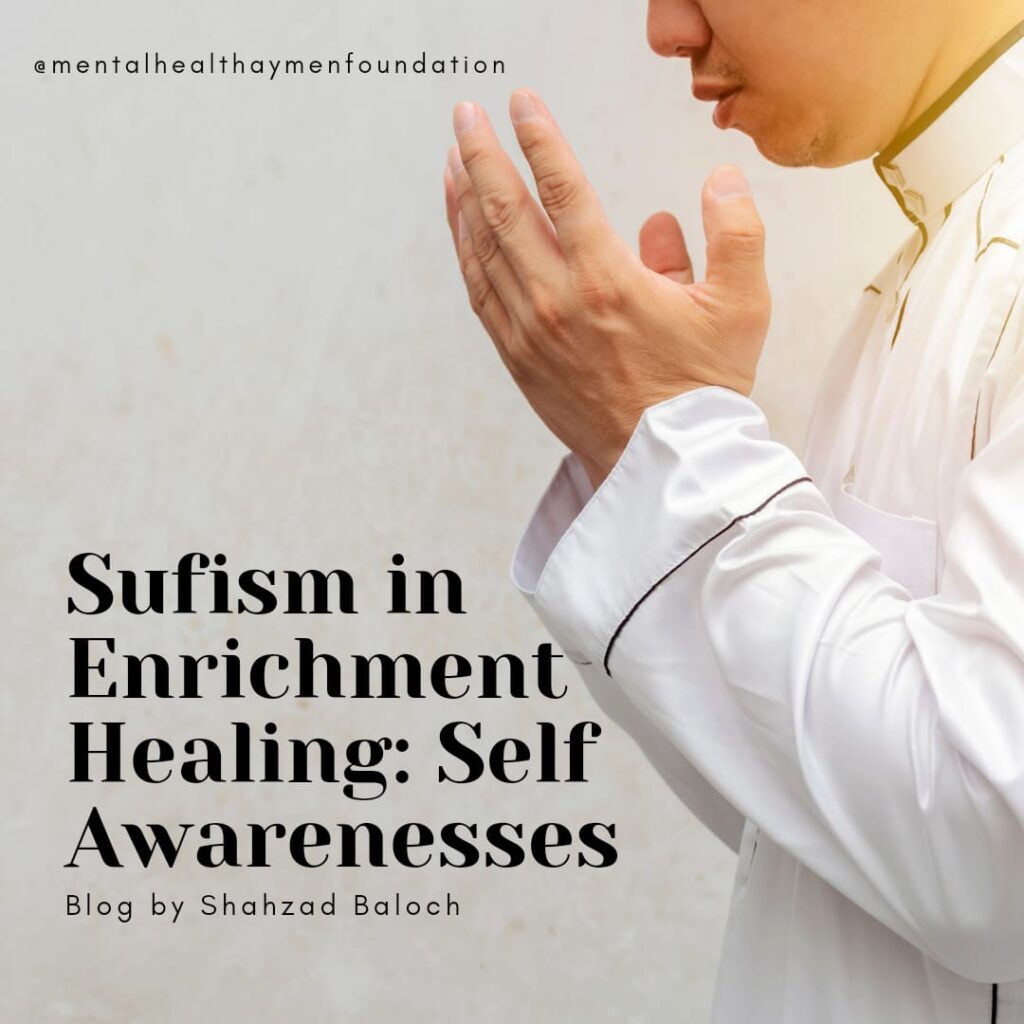
For centuries, Sufism has been the backbone of Islamic psychotherapeutic practice, being considered the center of the tradition: it has proved to be illuminating for emotional and spiritual healing and complemented practical methods for mental well-being. Sufism psychologizes the Nafs (soul/self), its metamorphosis, and its position in the transformation of the human experience.
A Role of Nafs in Healing
Sufism-the Nafs-the self or ego- that spiritual essence of every one of us in the eyes of Sufism: the part of us that either obstructs or brings about growth. Through awareness of the self, the purification of Nafs can now turn from a source of inner turmoil to peace. Sufi practice is primarily concerned with purification which proved beneficial in relieving stress, anxiety, and depression.
Among them is dhikr, a rhythmic spirit by which one repeats the name of God. In the Quran Q. 33:41-2 in one of its forms. It is a way that has come in translating one’s contact with pure spirit experience. Islamic therapists use this in their therapy sessions, suggesting it as therapy for emotional and mental health.
Definitions of Sufism
Though the term Sufism has many meanings, it is traditionally considered an allusion to the woolen garments worn by early mystics or the ascetic group called Suffa, companions of the Prophet Muhammad. Some link the word to wisdom (sophos) in Greek philosophy. It has been debated about its legitimacy as part of mainstream Islam but thus has been assume to accommodate many scholars, such as Imam al-Shafi’i and Imam Ahmad ibn Hanbal. Such acceptance has further provided legitimacy for Sufism as a spiritual and clinical means to act.
The Four Stages of Sufi Understandings
Muhyiddin Ibn Arabi, a great Sufi scholar, who passed on at the age of 73 in 1240, proposes a four-step pathway along which a guy would proceed on his spiritual trek through shari’ah, tariqah, haqiqah, and ma’rifah. The progression through these stages consists of the first being ethical living through shari’ah, the second involving going deeper into the mystical, the third being the realization of truth in haqiqah, and the final culminating knowledge of God in ma’rifah. These stages are comprehensive phases of the spiritual as well as psychic life.
Sufi Orders and Their Clinical Practices
Sufi orders, whether in the Qadiriyah, the Rifa’iyah, or even the Shadhiliyah, dominate Sufism all over the world. In the West, the number of disciples has drastically reduced, but Sufism is still alive in many other Muslim communities. Each order gives importance to many different facets in the course of the mystical path, from ecstatic union with God to sober and disciplined practice.
Sufism practices in today’s Islamic psychotherapy and dealing with spiritual and emotional challenges occur from Sufism practices. However, combining mystical teachings today with modern therapeutic techniques gives a different and comprehensive approach to mental health, leading individuals on a path in the trials of life with peace and clarity.
Final Takeaways
Mind Healing through Sufism: Practices within Sufism such as dhikr and purification of the Nafs provide reliable avenues to tackle stress, anxiety, and emotional problems.
Holistic Healing: Sufism provides a complete approach to healing by integrating spirituality and emotional health.
The Four Levels of Understanding in Sufism:
The journey through the shari’ah, tariqah, haqiqah, and ma’rifah leads to the possibility of holistic growth, where ethical living, mystical insight, and direct connection with the divine can be balance.
Even though the interpretation of Sufism differs and the existence of traditional orders has almost become neglected in the West, Sufism will continue to be the most relevant spiritual tradition addressing inner peace and mental health.
